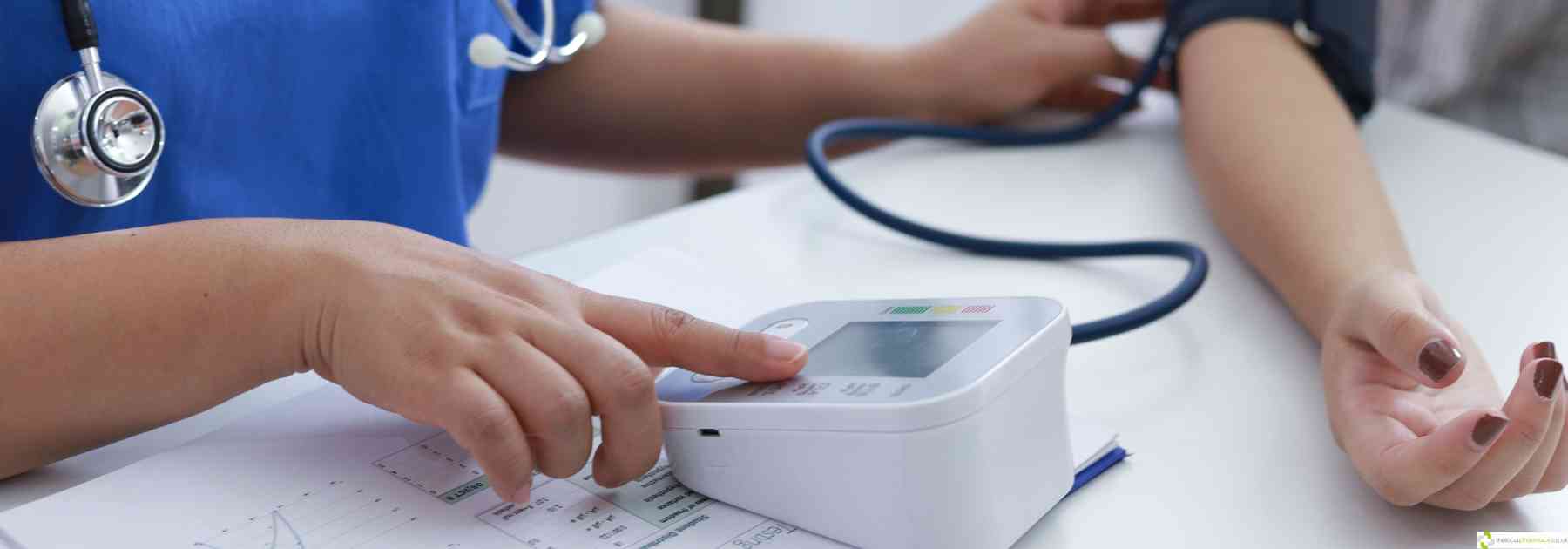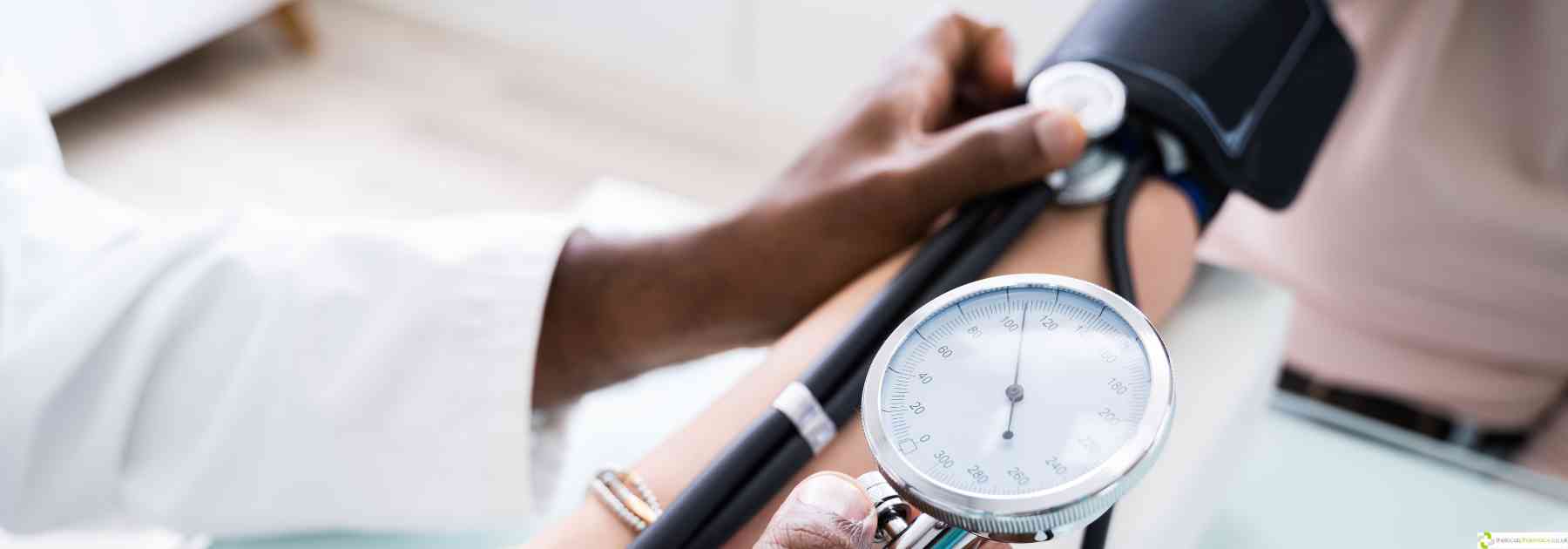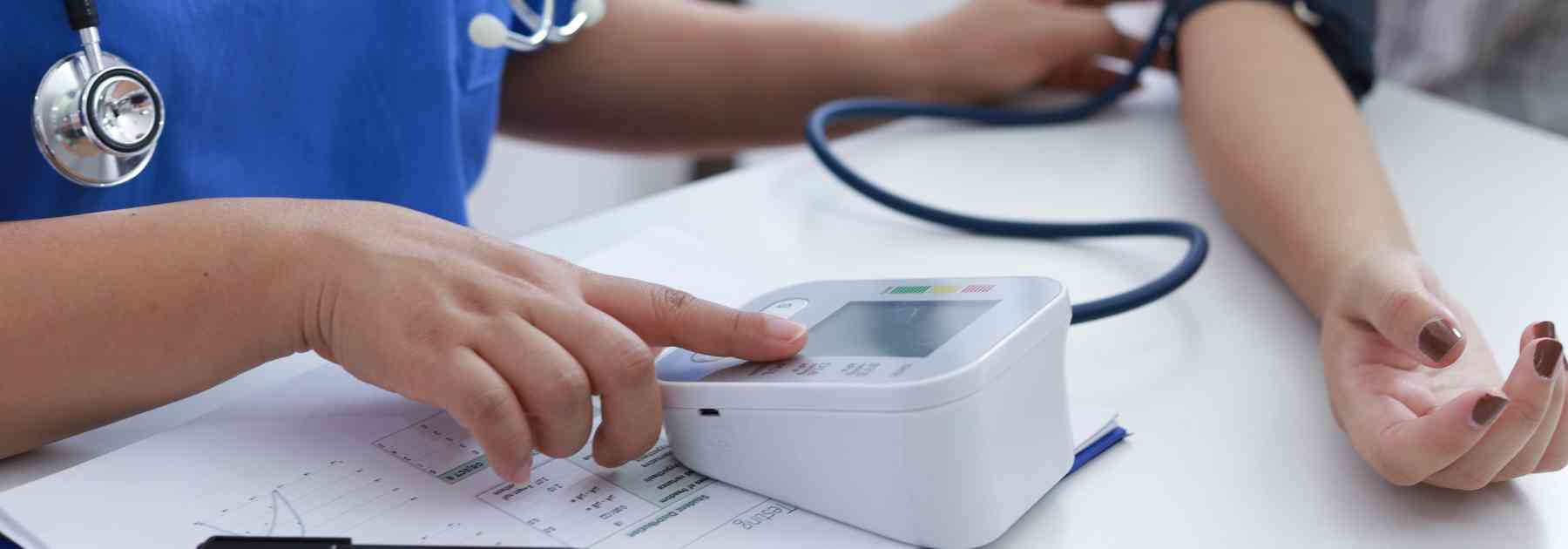NHS Shingles Treatment in Leicestershire
Shingles, medically known as herpes zoster, is a viral infection that causes a painful rash. It’s caused by the varicella-zoster virus, the same virus that causes chickenpox. After an individual has had chickenpox, the virus remains inactive in nerve tissue and can reactivate years later as shingles. At The Local Pharmacy, we understand how debilitating this condition can be, which is why we are proud to offer NHS shingles treatment through the Pharmacy First scheme.
What is Shingles?
Shingles typically presents as a single stripe of blisters that wraps around either the left or right side of your torso. It can also occur on other parts of the body, including the face and eyes. Before the rash appears, you might experience pain, itching, or tingling in the area where it will develop. Other symptoms include fever, headache, and fatigue.
The rash itself usually turns into fluid-filled blisters that eventually crust over. While the rash usually heals within two to four weeks, some people experience postherpetic neuralgia (PHN), a condition where the pain continues long after the rash has cleared. This can be particularly distressing and significantly impact one’s quality of life.
Who is at Risk?
Shingles can affect anyone who has had chickenpox, but certain factors increase the risk:
- Age: People over 50 are more susceptible.
- Weakened immune system: Conditions such as HIV/AIDS, cancer treatments, or long-term use of steroids can make you more vulnerable.
- Stress and Trauma: Physical or emotional stress can trigger an outbreak.
- Medications: Certain drugs that weaken the immune system can increase the risk of shingles.
Importance of Early Treatment
Early treatment of shingles is crucial in managing symptoms and reducing the risk of complications. Antiviral medications, such as acyclovir, valacyclovir, and famciclovir, are most effective when started within 72 hours of the rash appearing. These medications can help shorten the duration of the shingles outbreak, reduce the severity of symptoms, and lower the risk of developing PHN.

NHS Shingles Treatment at The Local Pharmacy
The NHS shingles treatment is available through the Pharmacy First scheme, which allows individuals to receive treatment for minor conditions directly from their local pharmacy without the need to see a GP. This initiative helps to alleviate the pressure on GPs and hospitals while providing quick and efficient care for patients.
Benefits of the Pharmacy First Scheme:
- Accessibility: Our pharmacy is conveniently located, making it easier for you to access the treatment you need without the hassle of making a doctor’s appointment.
- Quick Service: By visiting The Local Pharmacy, you can receive prompt attention and start your treatment sooner, which is vital for the effectiveness of antiviral medications.
- Expert Advice: Our trained pharmacists are well-equipped to provide you with comprehensive advice on managing your symptoms and preventing complications.
- Confidential Care: We ensure that all consultations are conducted in a private and confidential manner, respecting your privacy and dignity.
What to Expect During Your Visit
When you visit The Local Pharmacy for NHS shingles treatment, our friendly and professional staff will guide you through the process. Here’s what you can expect:
- Consultation: You’ll have a confidential consultation with one of our pharmacists, who will assess your symptoms and medical history.
- Diagnosis: If shingles is diagnosed, the pharmacist will explain the treatment options available and answer any questions you may have.
- Prescription: If appropriate, the pharmacist can prescribe antiviral medication on the spot, allowing you to start your treatment immediately.
- Follow-Up: We will provide advice on symptom management and discuss follow-up care, including when to seek further medical attention if necessary.
Preventing Shingles
One of the best ways to prevent shingles is through vaccination. The NHS offers the shingles vaccine to people in their 70s. The vaccine significantly reduces the risk of developing shingles and, if the disease does occur, can make it less severe. Speak to our pharmacists to learn more about the vaccine and find out if you are eligible.
Additional Tips to Prevent Shingles:
- Maintain a healthy immune system: Regular exercise, a balanced diet, and adequate sleep can help keep your immune system strong.
- Manage Stress: Practice stress-reducing techniques such as yoga, meditation, or deep-breathing exercises.
- Avoid Contact with Infected Individuals: While shingles itself isn’t contagious, the varicella-zoster virus can be spread to those who have never had chickenpox or the chickenpox vaccine, causing them to develop chickenpox.

Managing Shingles at Home
In addition to the antiviral treatment prescribed by our pharmacists, there are several ways you can manage your symptoms at home:
- Pain Relief: Over-the-counter painkillers, such as ibuprofen or acetaminophen, can help manage pain.
- Cool Compresses: Applying cool, wet compresses to the rash can soothe itching and pain.
- Loose Clothing: Wearing loose-fitting clothing can prevent irritation of the rash.
- Calamine Lotion: This can help relieve itching and discomfort.
- Rest: Adequate rest is crucial for recovery.
Why Choose The Local Pharmacy?
At The Local Pharmacy, we are committed to providing high-quality care and support to our community. By offering NHS shingles treatment through the Pharmacy First scheme, we strive to make healthcare more accessible and efficient. Our team of experienced pharmacists is dedicated to helping you manage your health with compassion and professionalism.
Book an Appointment
If you suspect you have shingles, don’t wait, visit us today and let our expert pharmacists provide the care and support you need to get back to feeling your best.
Remember, early treatment is key to reducing the severity and duration of shingles. Trust The Local Pharmacy for your healthcare needs, and let us help you stay healthy and informed.
This blog was written on behalf of The Local Pharmacy by Pharmacy Mentor.
Discover related articles
How to Get Rid of a UTI in 24 Hours: Effective Tips and Strategies
Urinary tract infections (UTIs) are a common and often painful condition that can affect anyone but they are more prevalent in women. Characterised by a burning sensation during urination, frequent urges to urinate, and cloudy or strong-smelling urine, UTIs can quickly become a major inconvenience. If you’ve ever had a UTI, you know the urgency of finding relief. Here, we’ll explore how to get rid of a UTI in 24 hours using a combination of medical treatments and home remedies.
Understanding UTIs
Before diving into the remedies, it’s important to understand what causes UTIs. These infections occur when bacteria enter the urinary tract and multiply. The urinary tract includes the kidneys, bladder, ureters, and urethra. Most UTIs involve the lower urinary tract – the bladder and the urethra. Common causes include poor hygiene, sexual activity, certain types of birth control, and a suppressed immune system.
Symptoms of a UTI
Recognising the symptoms of a UTI is crucial for timely treatment. Symptoms include:
- A strong, persistent urge to urinate
- A burning sensation during urination
- Passing frequent, small amounts of urine
- Cloudy, dark, bloody, or strange-smelling urine
- Pelvic pain, especially in women
If you experience these symptoms, taking immediate action can help you get rid of a UTI quickly.

How to Get Rid of a UTI in 24 Hours: Medical Treatments
- Antibiotics: The most effective way to treat a UTI is through prescribed antibiotics. They can start alleviating symptoms within hours and clear up the infection in a few days. Common antibiotics for UTIs include trimethoprim/sulfamethoxazole, fosfomycin, nitrofurantoin, and cephalexin. It’s crucial to take the full course of antibiotics even if symptoms improve.
- Over-the-Counter (OTC) Remedies: While waiting for antibiotics to take effect, OTC pain relievers like ibuprofen or acetaminophen can help reduce pain and fever. Additionally, phenazopyridine can help soothe the urinary tract lining and relieve discomfort.
How to Get Rid of a UTI in 24 Hours: Home Remedies
- Hydration: Drinking plenty of water is essential. It helps dilute urine and ensures that you urinate more frequently, flushing bacteria out of your urinary tract. Aim for at least eight glasses of water a day.
- Cranberry Juice: Unsweetened cranberry juice is a popular remedy. It contains compounds that may prevent bacteria from adhering to the urinary tract walls. Drink a glass of cranberry juice or take cranberry supplements as directed.
- Probiotics: Probiotics can promote a healthy balance of bacteria in your body and may help prevent UTIs. Yoghurt, kefir, and probiotic supplements are good sources.
- Vitamin C: Vitamin C increases the acidity of urine, which can inhibit bacterial growth. Consuming vitamin C-rich foods like oranges, strawberries, and bell peppers, or taking a vitamin C supplement, can be beneficial.
- Warm Compress: Applying a warm heating pad to your lower abdomen can help reduce bladder pressure and discomfort. This can be particularly soothing during a painful UTI.
- Herbal Remedies: Herbal teas like uva ursi, parsley, and garlic have diuretic and antibacterial properties. Drinking these teas can help flush out the urinary system and fight infection.
Preventive Measures
Preventing future UTI’s is just as important as treating them. Here are some tips to reduce your risk:
- Practice Good Hygiene: Always wipe from front to back after using the toilet to prevent bacteria from spreading.
- Urinate Frequently: Don’t hold in urine for long periods. Empty your bladder regularly.
- Stay Hydrated: Drink plenty of fluids to keep your urinary tract healthy.
- Urinate After Sex: This helps flush out any bacteria that may have entered the urethra.
- Avoid Irritating Products: Stay away from douches, scented feminine hygiene products, and powders that can irritate the urethra.
- Wear Loose Clothing: Opt for breathable, cotton underwear and avoid tight-fitting pants to reduce moisture and bacterial growth.

When to See a Doctor
While home remedies can be effective, it’s important to know when to seek medical help. If you have symptoms of a UTI that do not improve within 24-48 hours of starting home treatment, or if you experience severe pain, fever, nausea, or vomiting, see a doctor immediately. These could be signs of a more serious infection that requires medical intervention.
Get UTI Treatment Near You
Dealing with a UTI can be incredibly uncomfortable, but with prompt and effective treatment, relief is within reach. Combining medical treatments like antibiotics with home remedies can help you get rid of a UTI in 24 hours. Always consult a healthcare professional before starting any new treatment, especially if you have underlying health conditions or are pregnant. By following these guidelines and taking preventive measures, you can minimise the risk of recurrent infections and maintain a healthy urinary tract. Book an appointment at one of our branches today to get treatment.
This blog was written on behalf of The Local Pharmacy by Pharmacy Mentor.
Discover related articles
Understanding & Managing High Blood Pressure
We’re passionate about your health and well-being, and we’re here to help you manage your blood pressure effectively. Did you know that high blood pressure, also known as hypertension, affects one in four adults in the UK? It’s a common condition that can lead to serious health problems if not managed properly. The good news is that with the right knowledge and lifestyle changes, you can take control of your blood pressure. And we’re here to support you every step of the way with our free NHS blood pressure checks through the NHS Hypertension Service.
Understanding Blood Pressure
Blood pressure is the force of your blood pushing against the walls of your arteries. When it’s too high, it puts extra strain on your heart and blood vessels. This can lead to heart disease, stroke, kidney disease, and other health issues. Blood pressure is measured in millimetres of mercury (mmHg) and is given as two numbers: systolic pressure (the pressure when your heart beats) over diastolic pressure (the pressure when your heart rests between beats). A normal reading is usually around 120/80 mmHg.
Why Regular Blood Pressure Checks Are Important
Regular blood pressure checks are crucial because high blood pressure often has no symptoms. The only way to know if you have it is to have your blood pressure measured. This is where we come in! At The Local Pharmacy, we offer free NHS blood pressure checks as part of the NHS Hypertension Service. Our friendly and knowledgeable team is here to help you monitor your blood pressure and provide advice on how to keep it within a healthy range.

10 Tips to Reduce High Blood Pressure
Managing high blood pressure involves a combination of lifestyle changes and, in some cases, medication. Here are ten practical tips to help you lower your blood pressure naturally:
- Maintain a Healthy Diet: Eat a balanced diet rich in fruits, vegetables, whole grains, and lean proteins. Reduce your intake of saturated fats, trans fats, and cholesterol. The DASH (Dietary Approaches to Stop Hypertension) diet is a great example of a heart-healthy eating plan.
- Reduce Salt Intake: Excessive salt can raise your blood pressure. Aim for less than 6 grams (about a teaspoon) of salt a day. Check food labels and choose low-sodium options when possible.
- Exercise Regularly: Aim for at least 150 minutes of moderate-intensity exercise, such as brisk walking, cycling, or swimming, every week. Regular physical activity helps your heart pump more efficiently, lowering your blood pressure.
- Maintain a Healthy Weight: Being overweight increases your risk of hypertension. Losing even a small amount of weight if you’re overweight or obese can help reduce your blood pressure.
- Limit Alcohol Intake: Drinking too much alcohol can raise your blood pressure. Stick to the recommended limits: no more than 14 units of alcohol a week for both men and women, spread over three or more days.
- Quit Smoking: Smoking damages your blood vessels and raises your blood pressure. Quitting smoking is one of the best things you can do for your heart health.
- Manage Stress: Chronic stress can contribute to high blood pressure. Practice relaxation techniques such as deep breathing, meditation, or yoga. Make time for activities you enjoy and ensure you get enough sleep.
- Limit Caffeine: Caffeine can cause a short-term spike in blood pressure. If you’re sensitive to caffeine, consider reducing your intake of coffee, tea, and energy drinks.
- Monitor Your Blood Pressure at Home: Regular monitoring can help you keep track of your blood pressure and see how lifestyle changes are making a difference. Ask our team about how to properly use a home blood pressure monitor.
- Take Medications as Prescribed: If your doctor prescribes medication to help control your blood pressure, it’s important to take it as directed. Don’t skip doses or stop taking your medication without consulting your healthcare provider.

How We Can Help
At The Local Pharmacy in Leicestershire, we’re committed to supporting your health. Our free NHS blood pressure checks are a simple and effective way to keep an eye on your blood pressure. Here’s what you can expect:
- Friendly, Professional Service: Our trained pharmacists will measure your blood pressure using the latest equipment and provide you with your readings.
- Personalised Advice: Based on your results, we’ll offer practical tips and advice tailored to your lifestyle and health needs.
- Ongoing Support: We’re here to help you track your progress and make any necessary adjustments to your lifestyle or treatment plan. Regular check-ups are key to maintaining healthy blood pressure levels.
- Convenient and Accessible: No need to book an appointment with your GP. Simply drop by our pharmacy, and we’ll take care of the rest.
Take Control of Your Blood Pressure Today
Managing high blood pressure is a lifelong commitment, but with the right support, it’s entirely achievable. Our team at The Local Pharmacy in Leicestershire is here to help you every step of the way. Whether you need a free NHS blood pressure check, advice on lifestyle changes, or support with your medications, we’ve got you covered.
This blog was written on behalf of The Local Pharmacy by Pharmacy Mentor.
Discover related articles
The Best Ear Wax Removal in Leicester
At The Local Pharmacy, we understand how important ear health is to your overall well-being. That’s why we’ve established our premier Ear Wax Removal Clinic, offering what we believe is the best ear wax removal in Leicester. Our goal is to provide a comprehensive and personalised service that addresses all aspects of ear health, from diagnosis and treatment to follow-up care.
Understanding Ear Wax and Its Importance
Ear wax, or cerumen, is a natural substance produced by glands in the ear canal. It serves several important functions, such as protecting the ear from dust, foreign particles, and microorganisms. It also prevents irritation of the ear canal by acting as a lubricant.
However, ear wax can sometimes accumulate to the point where it causes discomfort, hearing loss, and even infections. When this happens, professional removal becomes necessary.
Microsuction: The Gold Standard of Ear Wax Removal
At The Local Pharmacy, we utilise the microsuction technique for ear wax removal. This method is widely regarded as the safest and most effective way to remove ear wax. Here’s why microsuction stands out:
- Precision and Safety: Microsuction uses a gentle suction device to remove ear wax under direct visualisation with a microscope. This ensures that the wax is removed safely without damaging the delicate structures of the ear.
- Comfort: Unlike traditional methods such as ear syringing, microsuction is usually more comfortable for the patient. There is no use of water, which can sometimes be uncomfortable or cause infections.
- Efficiency: The procedure typically lasts about 30 minutes, making it quick and convenient.

Our Competitive Pricing and Easy Booking Process
At The Local Pharmacy, we pride ourselves on offering competitive pricing for our ear wax removal services. We believe that everyone should have access to high-quality ear care without breaking the bank. Our pricing structure is designed to be affordable, ensuring that you get the best value for your money.
Booking an appointment with us is simple and hassle-free. You can either book online through our user-friendly website or give us a call. Our team is always ready to assist you in scheduling an appointment that fits your busy schedule.
Comprehensive Ear Health Checks
One of the key advantages of choosing The Local Pharmacy for your ear wax removal needs is our comprehensive approach to ear health. We don’t just remove the excess wax; we offer full ear health checks to ensure there are no underlying issues that need attention.
During your visit, our trained professionals will conduct a thorough examination of your ears. This helps us identify any potential problems early on and provide the necessary treatment or advice. Our holistic approach ensures that you leave our clinic with optimal ear health.
Medication and Aftercare
As a pharmacy, we are uniquely positioned to offer not just ear wax removal services but also the medication and aftercare products you might need. For instance, we provide a range of products such as olive oil drops, Cerumol, and other specialised treatments that can help in softening ear wax and preventing future build-ups.
Our team will guide you on the best practices for maintaining ear hygiene and preventing ear wax accumulation. We believe in empowering our patients with the knowledge and tools they need to take control of their ear health.
Multiple Branches for Your Convenience
We have multiple branches across the Midlands, including locations in Leicester, Nuneaton, Spalding, Loughborough, and Sutton-in-Ashfield. This means you can access our top-notch ear wax removal services no matter where you are in the region.
Each of our branches is staffed by trained professionals who are dedicated to providing the same high level of care and personalised service. Whether you visit us in Leicester or any of our other locations, you can expect the same quality treatment and friendly service.

Why Choose The Local Pharmacy?
Choosing The Local Pharmacy for your ear wax removal needs comes with several benefits:
- Personalised Care: As a local business, we are deeply committed to serving our community with a personal touch. We take the time to understand your specific needs and tailor our services accordingly.
- Professional Expertise: Our team of trained professionals has extensive experience in ear care and microsuction techniques. You can trust us to provide safe and effective treatment.
- Convenience: With multiple branches and easy booking options, we make it convenient for you to get the care you need when you need it.
- Comprehensive Services: From ear health checks to medication and aftercare, we offer a full spectrum of services to ensure your ears remain healthy.
Book Your Appointment
If you’re looking for the best ear wax removal in Leicester, look no further than The Local Pharmacy. Our dedicated team is here to provide you with the highest standard of care. Don’t let ear wax build-up affect your quality of life. Book your appointment today by visiting our website or giving us a call. We look forward to helping you achieve optimal ear health!
This blog was written on behalf of The Local Pharmacy by Pharmacy Mentor.
Discover related articles
Knight Street Pharmacy: Your Local Pharmacy in Spalding
Knight Street Pharmacy, is a well-established community pharmacy located in the Pinchbeck area of Spalding. As a cornerstone of our local community, we are dedicated to providing an array of healthcare services and products tailored to meet the needs of our residents. From prescription dispensing to offering over-the-counter medications, health supplements, and personal care items, we are committed to enhancing the health and well-being of our community.
Our Services
Prescription Dispensing: At Knight Street Pharmacy, we understand the importance of timely and accurate prescription dispensing. Our highly trained pharmacists ensure that every prescription is filled with precision and care. We also provide advice on medication usage, potential side effects, and interactions to ensure that you get the most benefit from your treatment.
Over-the-Counter Medications and Health Supplements: In addition to prescription medications, we offer a wide selection of over-the-counter medications and health supplements. Whether you need pain relief, allergy medication, or vitamins to support your health, you can find it at our pharmacy in Spalding.
Personal Care Items: Our pharmacy also stocks a variety of personal care items to help you maintain your health and hygiene. From skincare products to first aid supplies, we have everything you need to take care of yourself and your family.
Medication Reviews: We offer comprehensive medication reviews to help you manage your medicines more effectively. Our pharmacists will review your medications, discuss any concerns you may have, and provide recommendations to optimise your treatment.
Flu Vaccinations and Travel Health Advice: Staying healthy year-round is crucial, and our flu vaccination service is here to help protect you during the flu season. Additionally, if you’re planning to travel, our travel health advice and vaccinations can prepare you for your journey, ensuring that you stay healthy while exploring new destinations.
Blood Pressure Checks: Regular blood pressure monitoring is essential for maintaining heart health. Our pharmacy offers convenient blood pressure checks to help you keep track of your levels and manage your health effectively.

24/7 Prescription Collection Point
Understanding the demands of modern life, we have introduced a revolutionary 24/7 prescription collection point. This service allows you to collect your prescribed medications at any time that suits you, day or night, seven days a week. By eliminating the need to wait in queues, we offer a hassle-free experience, ensuring your health needs are met with maximum convenience.
Why Community Pharmacies Are Important
Community pharmacies like Knight Street Pharmacy play a vital role in the healthcare system and are crucial for the well-being of communities. Here are some reasons why our local pharmacy is indispensable:
Accessibility and Convenience: Local pharmacies are easily accessible, and often situated within walking distance for many residents. With our extended operating hours, and 24/7 prescription collection, we ensure that you can obtain the medications and advice you need at a time that fits your schedule. This is especially beneficial for elderly individuals, those with disabilities, or people living in remote areas who may find it challenging to travel to larger healthcare facilities.
Expert Advice and Guidance: Our pharmacists are highly trained healthcare professionals who can provide invaluable advice on medication usage, interactions, and side effects. We are here to answer any questions you may have, ensuring you feel confident and informed about your health and treatment options.
Health Screenings and Preventative Services: In addition to dispensing medications, we offer a range of health screenings such as blood pressure and cholesterol testing. Preventative services like these are essential in detecting potential health issues early, allowing for timely intervention and better health outcomes. Our vaccination services, including flu, shingles, and pneumonia vaccines, help protect our community from common and potentially severe illnesses.
Personalised Care: At Knight Street Pharmacy, we pride ourselves on delivering personalised care tailored to each individual’s needs. We take the time to get to know our customers, providing a level of service that larger pharmacies often cannot match. This personal touch fosters trust and ensures that you receive the best possible care.
Embracing Innovation for Better Service: Our commitment to enhancing customer experience is reflected in our adoption of innovative solutions like the 24/7 prescription collection point. This service not only offers unparalleled convenience but also demonstrates our dedication to leveraging technology to meet the evolving needs of our customers.

Visit Knight Street Pharmacy in Spalding
We invite you to experience the difference at Knight Street Pharmacy, your trusted pharmacy in Spalding. Whether you need a prescription filled, health advice, or preventative services, our dedicated team is here to support you. Our goal is to be your go-to resource for all your healthcare needs, providing exceptional service with a personal touch.
Contact our team today to find out how we can help. We look forward to serving you and helping you achieve optimal health and well-being.
This blog was written on behalf of The Local Pharmacy by Pharmacy Mentor.
Discover related articles
Kasli Pharmacy: Your Trusted Pharmacy in Nuneaton
Are you looking for a pharmacy in Nuneaton? Look no further than Kasli Pharmacy, where your health and well-being are our top priorities. Our pharmacy is dedicated to providing the community with a comprehensive range of healthcare services. From prescription dispensing and over-the-counter medication sales to health advice and specialised services, Kasli Pharmacy is your go-to destination for all your healthcare needs.
Exceptional Customer Service
At Kasli Pharmacy, we pride ourselves on our exceptional customer service. Our team is comprised of highly trained and knowledgeable staff who are always ready to go the extra mile to assist you. Whether you need detailed information about a medication, advice on managing a health condition, or assistance with our various services, you can count on us to provide you with the support and guidance you need.
Our commitment to customer service extends beyond just dispensing medications. We believe in building lasting relationships with our customers, understanding their unique needs, and providing personalised care. Your health and satisfaction are at the core of everything we do, and we strive to create a welcoming and supportive environment for everyone who walks through our doors.
Comprehensive Healthcare Services
As a leading pharmacy in Nuneaton, we offer a wide array of healthcare services designed to cater to the diverse needs of our community. Here’s a closer look at what we provide:
Prescription Dispensing: We ensure that your prescriptions are filled promptly and accurately. Our team is available to answer any questions you might have about your medication, including dosage instructions and potential side effects.
Over-the-Counter Medications: In addition to prescription medications, we stock a wide variety of over-the-counter drugs and health products. Whether you’re dealing with a common cold, allergies, or minor aches and pains, we have the remedies you need.
Health and Wellness Advice: Our pharmacists are more than just dispensers of medicine. They are trusted health advisors who can offer you expert advice on managing chronic conditions, maintaining a healthy lifestyle, and preventing illness.

Specialised Services
At Kasli Pharmacy, we understand that every individual has unique health requirements. That’s why we offer a range of specialised services to meet those needs:
Travel Clinic: Planning a trip abroad? Our comprehensive travel clinic is here to help you stay healthy while you explore the world. We provide travel vaccinations, health advice tailored to your destination, and any travel-related healthcare services you might need. Whether you’re travelling for business or pleasure, we’ll ensure you’re well-prepared.
Home Healthcare Products: Managing chronic health conditions or age-related issues can be challenging. To help you maintain your independence and quality of life, we offer a variety of home healthcare products, including mobility aids and medical equipment. Our team can assist you in selecting the right products to suit your needs and demonstrate how to use them effectively.
PharmacyPac: We are excited to introduce our revolutionary PharmacyPac service, designed to make medication management easier than ever. With PharmacyPac, your medications are organised into individual, easy-to-open packets, each labelled with the date and time they should be taken. This service is particularly beneficial for those on multiple medications, helping to reduce confusion and ensure adherence to prescribed regimens.
Convenient Access and Innovative Solutions
Convenience is a key aspect of our service. We understand that our customers lead busy lives, and accessing healthcare services should be as easy as possible. That’s why we’re conveniently located in the heart of Nuneaton and open six days a week. You can drop by at a time that suits you, and our friendly staff will be ready to assist you.
24/7 Prescription Collection Point: In our continuous effort to enhance customer experience, we’ve introduced a revolutionary 24/7 prescription collection point. This service allows you to collect your prescribed medications at any time, day or night, seven days a week. No more waiting in long queues or rushing to get to the pharmacy before closing time. With our 24/7 collection point, you can retrieve your medications swiftly and efficiently, fitting seamlessly into your busy schedule.

Our Commitment to the Community
At Kasli Pharmacy, our mission goes beyond just providing medications. We are dedicated to enhancing the overall health and well-being of the Nuneaton community. We actively participate in local health initiatives and work closely with healthcare professionals to ensure that our customers receive comprehensive and coordinated care.
Our commitment to the community is reflected in everything we do. We understand the unique healthcare needs of our local population and strive to address them with compassion and expertise. By choosing Kasli Pharmacy, you are supporting a local business that genuinely cares about the health of its neighbours.
Choose Kasli Pharmacy in Nuneaton
We are honoured to be a trusted pharmacy in Nuneaton. Your health and satisfaction are our top priorities, and we are committed to providing you with the highest quality of care and service. Whether you’re in need of a quick prescription refill, detailed health advice, or specialised services, Kasli Pharmacy is here for you.
For more information, feel free to contact us or stop by our pharmacy in Nuneaton. We’re always here to help you.
This blog was written on behalf of The Local Pharmacy by Pharmacy Mentor.
Discover related articles
Infected Insect Bites & How To Treat Them
Do you or your child have an infected insect bite? Why not visit one of our branches and get treatment through the NHS Pharmacy First Scheme. Our team are readily available to help you get the treatment that you need.
Understanding Insect Bites
Insect bites are a nuisance we often encounter during outdoor activities or even just relaxing in our own backyard. Mosquitoes, ticks, fleas, and other insects are notorious for leaving behind itchy, red welts that can disrupt our daily lives. While most insect bites are harmless and resolve on their own, they can sometimes lead to complications, especially if they become infected.
Signs of Infection
An infected insect bite can cause a range of symptoms beyond the typical itchiness and redness. Look out for signs such as:
- Increased pain or tenderness around the bite area
- Swelling that extends beyond the immediate bite site
- Warmth or redness spreading from the bite
- Pus or drainage
- Fever or chills
These symptoms indicate that the body’s natural defences are overwhelmed, and bacteria have taken hold at the bite site. If left untreated, an infected insect bite can lead to more serious complications, so it’s essential to seek prompt medical attention.

Seeking Treatment
Fortunately, relief is just a visit away at your local pharmacy. Our team of dedicated professionals is here to support you in managing your health concerns, including infected insect bites. Through the NHS Pharmacy First service, eligible patients can receive treatment and advice from trained pharmacists without needing to see a GP first.
The Pharmacy First service allows you to access medications and remedies for minor ailments, including infected insect bites, conveniently and efficiently. Our pharmacists are well-equipped to assess your symptoms, provide appropriate treatment recommendations, and offer valuable advice on wound care and prevention.
Treatment Options
When it comes to treating infected insect bites, there are several options available depending on the severity of the infection. Your pharmacist may recommend:
- Topical antiseptic creams or ointments to help kill bacteria and reduce inflammation
- Oral antihistamines to alleviate itching and discomfort
- Pain relievers such as ibuprofen or acetaminophen to ease pain and reduce fever
- Antibiotics for more severe infections or cases where the infection has spread
Our goal is to provide you with personalised care that addresses your specific needs and concerns. We’ll work closely with you to ensure that you receive the most effective treatment tailored to your situation.

Prevention Tips
While treating infected insect bites is important, prevention is key to avoiding future discomfort and complications. Here are some tips to protect yourself from insect bites:
- Use insect repellent containing DEET or picaridin when spending time outdoors
- Wear long sleeves, pants, and closed-toe shoes, especially in areas with high insect activity
- Avoid standing water where mosquitoes breed, and use mosquito nets or screens when sleeping outdoors
- Check yourself and your pets for ticks after spending time in wooded or grassy areas
- Keep your surroundings clean and free of food scraps to deter ants and other insects
By taking these simple precautions, you can minimise your risk of insect bites and enjoy the great outdoors with peace of mind.
Get Treatment for Infected Insect Bites
Dealing with an infected insect bite can be a frustrating experience, but you don’t have to suffer alone. Your local pharmacy is here to support you every step of the way, from providing prompt treatment to offering valuable prevention tips. Remember, if you’re experiencing symptoms of an infected insect bite, don’t hesitate to reach out to us through the NHS Pharmacy First service. Together, we’ll help you find relief and get back to enjoying life itch-free.
This blog was written on behalf of The Local Pharmacy by Pharmacy Mentor.
Discover related articles
Get Hay Fever Tablets From The Local Pharmacy
With spring in full swing, many of us are enjoying the warmer weather and blooming flowers. However, for some, this season brings the dreaded onset of hay fever. If you’re amongst those affected, don’t fret. We’re here to help you understand hay fever, its symptoms, causes, treatments, and most importantly, how to manage it effectively with the right tools, including hay fever tablets.
What is Hay Fever?
Hay fever, also known as allergic rhinitis, is a common allergic condition characterised by inflammation of the nasal passages due to exposure to allergens such as pollen, dust mites, or pet dander. While it’s often associated with hay, it can actually be triggered by various airborne particles, particularly during spring and summer when pollen levels are high.

Symptoms of Hay Fever
The symptoms of hay fever can range from mild to severe and may include:
- Persistent sneezing
- Runny or blocked nose
- Itchy, watery eyes
- Nasal congestion
- Itchy throat, ears, or palate
- Coughing
- Fatigue
- Headache
These symptoms can significantly impact your daily life, making it essential to seek effective treatment.
Causes of Hay Fever
Hay fever occurs when your immune system overreacts to allergens, releasing chemicals such as histamine that cause inflammation and irritation in your nasal passages and eyes. Genetic factors may predispose individuals to hay fever, and environmental factors such as pollen levels and air pollution can exacerbate symptoms.
Treatments for Hay Fever
Fortunately, several treatments can help alleviate hay fever symptoms and improve your quality of life. These include:
Antihistamines: These medications block the effects of histamine, reducing sneezing, itching, and runny nose.
Decongestants: Decongestant nasal sprays or tablets can help relieve nasal congestion by shrinking swollen blood vessels in the nasal passages.
Corticosteroids: Nasal corticosteroid sprays reduce inflammation in the nasal passages, providing long-term relief from symptoms.
Allergy Shots (Immunotherapy): For severe cases of hay fever, allergy shots may be recommended to desensitise your immune system to specific allergens over time.

Managing Hay Fever Symptoms
In addition to medication, there are several steps you can take to manage hay fever symptoms and minimise your exposure to allergens:
Monitor Pollen Levels: Check daily pollen forecasts and try to stay indoors when pollen counts are high, particularly on windy days.
Keep Windows Closed: Keep windows and doors closed during peak pollen times to prevent allergens from entering your home.
Use Air Purifiers: Consider using air purifiers with HEPA filters to remove pollen and other airborne allergens from indoor air.
Wear Sunglasses: Wearing wraparound sunglasses can help protect your eyes from pollen and reduce itching and irritation.
Shower and Change Clothes: After spending time outdoors, shower and change your clothes to remove pollen from your skin and hair.
Avoid Mowing Lawns: If you’re allergic to grass pollen, avoid mowing lawns or delegate this task to someone else.
Get Relief with Hay Fever Tablets
At The Local Pharmacy, we understand the challenges of dealing with hay fever and the impact it can have on your daily life. That’s why we’re here to provide you with effective solutions to manage your symptoms. Our pharmacists can recommend the right hay fever tablets tailored to your needs, ensuring you get the relief you deserve.
Don’t let hay fever hold you back this spring. Visit The Local Pharmacy today and take control of your symptoms with our range of hay fever tablets and expert advice. Your health and well-being are our top priorities, and we’re committed to helping you feel your best, no matter the season.
This blog was written on behalf of The Local Pharmacy by Pharmacy Mentor.
Discover related articles
How To Lower Your Blood Pressure
Blood pressure is a vital sign that measures the force of blood against the walls of your arteries as your heart pumps it around your body. It’s crucial to maintain a healthy blood pressure level to reduce the risk of heart disease, stroke, and other health complications. In this blog, we’ll delve into what blood pressure is, how it affects your body, and offer 10 practical tips to lower your blood pressure naturally.
What is Blood Pressure?
Blood pressure consists of two numbers: systolic and diastolic pressure. Systolic pressure measures the force of blood when your heart beats, while diastolic pressure measures the force when your heart rests between beats. The ideal blood pressure reading is typically around 120/80 millimetres of mercury (mm Hg).
Does High Blood Pressure Make You Feel Tired?
High blood pressure, also known as hypertension, can indeed make you feel tired. When blood pressure is consistently high, it can strain your heart and blood vessels, leading to fatigue and a lack of energy. Additionally, hypertension can cause damage to organs like the kidneys, brain, and eyes, further contributing to fatigue and overall feelings of tiredness.

10 Tips to Lower Your Blood Pressure
- Maintain a Healthy Weight: Being overweight or obese increases the risk of hypertension. Losing even a small amount of weight can make a significant difference in lowering your blood pressure.
- Exercise Regularly: Engaging in physical activity for at least 30 minutes most days of the week can help lower blood pressure. Activities like brisk walking, swimming, or cycling are excellent choices.
- Follow a Healthy Diet: A diet rich in fruits, vegetables, whole grains, and lean proteins can help lower blood pressure. Avoiding processed foods, excessive salt, and saturated fats is essential.
- Limit Salt Intake: Excessive salt intake can raise blood pressure. Aim to consume less than 2,300 milligrams (about one teaspoon) of salt per day, and even less if you have hypertension.
- Reduce Alcohol Consumption: Drinking too much alcohol can raise blood pressure. Limit your alcohol intake to moderate levels, which means up to one drink per day for women and up to two drinks per day for men.
- Quit Smoking: Smoking damages blood vessels and raises blood pressure. Quitting smoking is one of the best things you can do to improve your overall health and lower your blood pressure.
- Manage Stress: Chronic stress can contribute to high blood pressure. Find healthy ways to manage stress, such as meditation, deep breathing exercises, yoga, or hobbies you enjoy.
- Get Enough Sleep: Poor sleep habits can raise blood pressure. Aim for 7-9 hours of quality sleep per night to help keep your blood pressure in check.
- Monitor Your Blood Pressure Regularly: Keep track of your blood pressure at home using a home blood pressure monitor. This can help you and your healthcare provider monitor your progress and make adjustments as needed.
- Follow Your Doctor’s Recommendations: If you have high blood pressure, follow your doctor’s recommendations for medication, lifestyle changes, and regular check-ups. It’s essential to work closely with your healthcare team to manage your blood pressure effectively.

Get a Free Blood Pressure Check
High blood pressure is a common condition that can have serious health consequences if left untreated. However, by making lifestyle changes and following the tips outlined in this blog, you can lower your blood pressure naturally and reduce your risk of heart disease, stroke, and other complications. Remember, small changes can add up to significant improvements in your blood pressure and overall health. If you have concerns about your blood pressure or health, contact our team for personalised advice and guidance. We can help.
This blog was written on behalf of The Local Pharmacy by Pharmacy Mentor.
Discover related articles
Shingles Treatment in Leicester
Shingles, also known as herpes zoster, is a viral infection caused by the varicella-zoster virus, the same virus that causes chickenpox. While most people recover from chickenpox, the virus remains dormant in nerve tissue and can reactivate years later, leading to shingles. This painful condition can affect anyone who has had chickenpox, and understanding its symptoms, treatment options, and availability of shingles treatment in Leicester is crucial for managing the condition effectively.
Symptoms of Shingles
Shingles typically manifests as a painful rash that develops on one side of the body, often in a band-like pattern. The rash usually appears as fluid-filled blisters that crust over within a few days and gradually heal over several weeks. Along with the rash, individuals may experience other symptoms such as:
- Pain, burning, or tingling sensation
- Itching
- Fever and chills
- Headache
- Fatigue
It’s important to note that shingles can be more severe in older adults and individuals with weakened immune systems, leading to complications such as postherpetic neuralgia, which causes persistent pain even after the rash has healed.

Treatment Options for Shingles
While there is no cure for shingles, prompt treatment can help alleviate symptoms, shorten the duration of the illness, and reduce the risk of complications. Treatment options for shingles include:
- Antiviral Medications: Antiviral drugs such as acyclovir, valacyclovir, and famciclovir are commonly prescribed to reduce the severity and duration of the shingles rash. These medications work by inhibiting the replication of the varicella-zoster virus.
- Pain Management: Over-the-counter pain relievers like ibuprofen or acetaminophen can help alleviate pain and discomfort associated with shingles. In some cases, prescription pain medications or topical creams containing capsaicin may be recommended.
- Calamine Lotion or Oatmeal Baths: Applying calamine lotion to the affected area or taking oatmeal baths can help soothe itching and promote healing of the rash.
- Rest and Hydration: Getting plenty of rest and staying hydrated can support the body’s immune response and help speed up recovery from shingles.
Shingles Treatment in Leicester
For individuals in Leicester who are seeking treatment for shingles, the Local Pharmacy offers shingles treatment through the NHS Pharmacy First Scheme. This scheme allows individuals to access treatment for minor ailments and conditions directly from their local pharmacy without needing to see a GP first.
Under the NHS Pharmacy First Scheme, individuals experiencing symptoms of shingles can visit the Local Pharmacy in Leicester to receive expert advice and treatment from qualified pharmacists. Pharmacists can assess the severity of the condition, provide appropriate medication, and offer guidance on managing symptoms effectively.
The convenience of accessing shingles treatment through the NHS Pharmacy First Scheme in Leicester is beneficial for individuals who may prefer a more accessible and timely option for managing their condition. By visiting the Local Pharmacy, individuals can receive personalised care and support tailored to their needs, ensuring effective management of shingles symptoms and promoting a speedy recovery.
In addition to providing treatment for shingles, the Local Pharmacy in Leicester also offers advice on preventive measures to reduce the risk of shingles and promote overall health and well-being. This may include information on vaccination options, maintaining a healthy lifestyle, and managing stress to support immune function.

Book an Appointment
Shingles is a painful viral infection that can cause discomfort and inconvenience for affected individuals. However, with prompt treatment and proper management, symptoms can be alleviated, and recovery can be expedited. For individuals in Leicester seeking shingles treatment, the NHS Pharmacy First Scheme offered by the Local Pharmacy provides a convenient and accessible option for accessing expert care and support from qualified pharmacists.
By understanding the symptoms of shingles, exploring available treatment options, and knowing where to access shingles treatment in Leicester, individuals can take proactive steps to manage their condition effectively and promote a speedy recovery. The Local Pharmacy in Leicester is committed to providing quality care and support to individuals affected by shingles, ensuring optimal health outcomes and well-being for the community.
This blog was written on behalf of The Local Pharmacy by Pharmacy Mentor.
